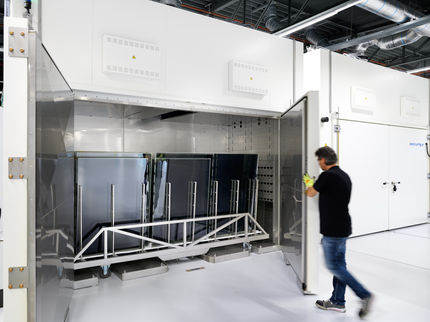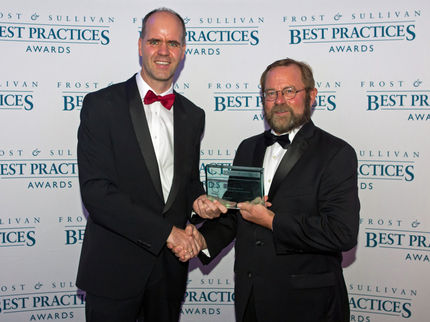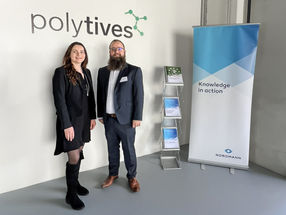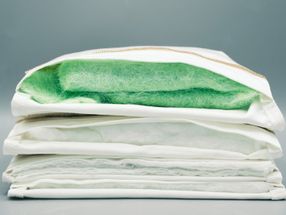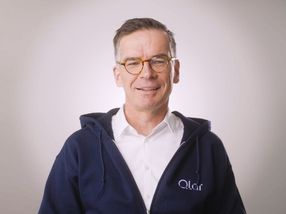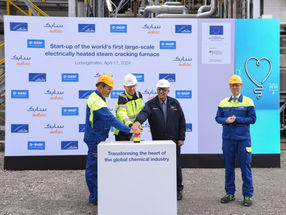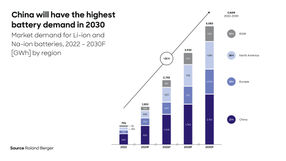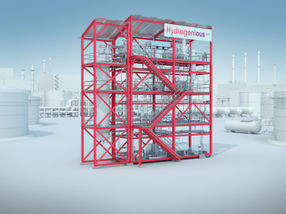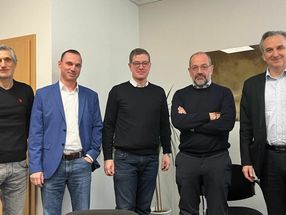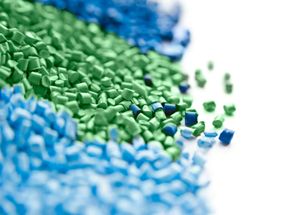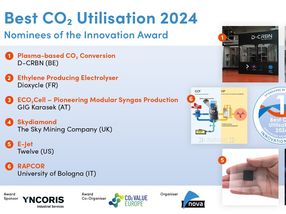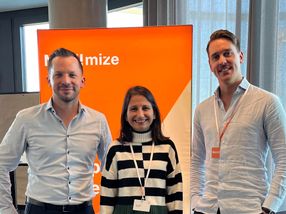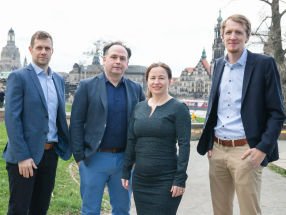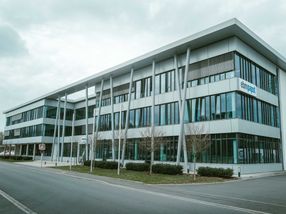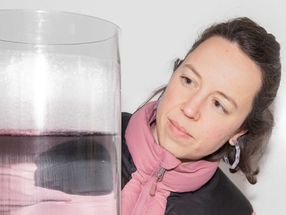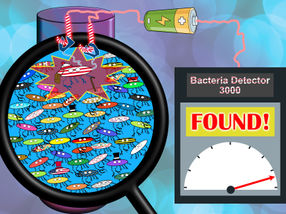Merck Sets Course for Future Growth
Life Science and Healthcare drive organic growth
Merck reported an increase in sales in the second quarter of 2017 along with a decline in EBITDA pre exceptionals compared with the year-earlier period. Merck confirmed its earnings guidance following the first six months of 2017.
“We have set the course for future growth. By focusing on innovative medicines, we made very important advances in Healthcare. We also continued to make headway with the integration of Sigma-Aldrich. At the same time, we are seeing a normalization of our unusually high market shares in the Liquid Crystals business. We confirm our earnings targets for the full year,” said Stefan Oschmann, CEO and Chairman of the Executive Board of Merck.
In the second quarter, Merck increased its net sales by 2.3% to € 3.9 billion (Q2 2016: € 3.8 billion). Organic sales growth of the Group was 2.3% and was driven by the Life Science and Healthcare business sectors. Additionally, net sales reflected slightly positive exchange rate effects of 0.4% and a slightly negative acquisition-related impact of -0.3%. Accounting for 32% of Group net sales, Asia-Pacific was the top-selling region.
EBITDA pre exceptionals fell by -5.6% to € 1.1 billion (Q2 2016: € 1.2 billion). Among other things, this was due to expenses in the Healthcare business sector as well as to the weaker Liquid Crystals business. The EBITDA margin pre exceptionals fell to 28.1% (Q2 2016: 30.4%). Group EBIT increased by 14.0% to € 628 million (Q2 2016: € 550 million), reflecting the impact of exceptionals. Net income rose significantly in the second quarter by 35.1% to € 421 million (Q2 2016: € 312 million), also thanks to an improved financial result. At € 1.54, earnings per share pre exceptionals were flat in the second quarter of 2017 (Q2 2016: € 1.55).
Net financial debt, which had increased sharply owing to the Sigma-Aldrich acquisition, decreased to € 11.2 billion as of June 30, 2017 (December 31, 2016: € 11.5 billion) despite dividend payments. Merck had 52,233 employees worldwide on June 30, 2017.
Organic growth in the first half
In the first half of 2017, net sales of the Merck Group increased by 3.8% to € 7.8 billion (January-June 2016: € 7.5 billion). This increase was due both to organic sales growth (2.7%) and favorable exchange rate effects (1.5%). In the first half of 2017, the impact of acquisitions and divestments (-0.3%) on sales was only slight. In the first six months of 2017, EBITDA pre exceptionals of the Merck Group rose by 4.1% to € 2.3 billion (January-June 2016: € 2.2 billion). Earnings per share pre exceptionals climbed 8.1% to € 3.34 in the first six months of 2017 (January-June 2016: € 3.09).
Healthcare invests in future growth
Sales by the Healthcare business sector increased organically in the second quarter of 2017 by 2.6%. Including slightly positive exchange rate effects as well as a negative acquisition impact of -1.0%, net sales of Healthcare rose by 1.7% in the second quarter of 2017 and amounted to € 1.8 billion (Q2 2016: € 1.8 billion).
Sales of Rebif, used to treat relapsing multiple sclerosis, decreased organically in the second quarter of 2017 by -3.7% compared with the year-earlier period owing to competitive pressure from oral formulations. Including very weak exchange rate effects, Rebif sales amounted to € 425 million (Q2 2016: € 441 million). Following a good first quarter, the oncology medicine Erbitux generated sales of € 213 million in the second quarter (Q2 2016: € 232 million). This represented an organic decline of -7.9% compared with the year-earlier period and was primarily attributable to ongoing competition in Europe. After having delivered record sales in the year-earlier quarter, sales of the fertility medicine Gonal-f declined organically in the second quarter of 2017 by -7.4% to € 193 million (Q2 2016: € 209 million).
EBITDA pre exceptionals of the Healthcare business sector dropped in the second quarter by -13.8% to € 480 million (Q2 2016: € 557 million). This was primarily attributable to higher marketing and selling expenses in the course of market launches of medicines as well as higher research and development costs. Accordingly, the EBITDA margin pre exceptionals of Healthcare decreased to 26.9% in the second quarter (Q2 2016: 31.8%).
Merck has made important strategic advances in the Healthcare business sector in 2017. On April 24, the divestment of the Biosimilars business to Fresenius was announced. The decision was in line with the strategy of Healthcare to focus its pipeline on innovative pharmaceuticals. On May 9, Merck announced that its immuno-oncology medicine Bavencio (avelumab) had been approved by the U.S. Food and Drug Administration (FDA) for the treatment of metastatic urothelial cancer. Prior to that, Bavencio had received FDA approval in metastatic Merkel cell carcinoma. On June 23, Merck received from the Committee for Medicinal Products for Human Use (CHMP) of the European Medicines Agency (EMA) a positive opinion recommending the marketing authorization for cladribine tablets (proposed tradename: Mavenclad) for the treatment of relapsing multiple sclerosis in patients with high disease activity. At the beginning of the third quarter, this was followed by a positive CHMP opinion for avelumab in metastatic Merkel cell carcinoma, received on July 21.
Life Science grows in all regions and increases profitability
The Life Science business sector grew organically by 4.2% in the second quarter of 2017, thus achieving the strongest organic growth of all Merck business sectors. Life Science benefited from ongoing demand from the biopharmaceutical industry. Apart from organic growth, both acquisition effects of 0.3% and very slight exchange rate effects contributed to the increase in sales. In the second quarter of 2017, net sales by the Life Science business sector rose by a total of 4.6% to € 1.5 billion (Q2 2016: € 1.4 billion).
The Process Solutions business area, which markets products for the entire pharmaceutical production value chain, delivered organic sales growth of 7.5%. The Research Solutions business area, which focuses on academia and pharmaceutical research institutions, reported organic sales growth of 1.7%. Applied Solutions, which serves clinical and diagnostic testing laboratories as well as the food and environmental industries, generated an organic sales increase of 3.1%.
EBITDA pre exceptionals of the Life Science business sector rose in the second quarter by 9.0% to € 454 million (Q2 2016: € 417 million). The EBITDA pre exceptionals margin of Life Science improved to 30.4% (Q2 2016: 29.1%) thanks to the realization of synergies from the Sigma-Aldrich acquisition, which Merck also resolutely pushed ahead with in the second quarter.
Performance Materials impacted by developments in Liquid Crystals
Net sales of the Performance Materials business sector fell organically by -3.2% in the second quarter, which was primarily due to declining sales in the Liquid Crystals business. This was mitigated by favorable foreign exchange effects of 1.8%. Consequently, net sales by the Performance Materials business sector decreased by -1.3% to € 612 million in the second quarter of 2017 (Q2 2016: € 621 million).
Particularly in the business with established liquid crystal technologies, Merck faced the previously announced normalization of its above-average market shares amid ongoing price pressure. Growth in other business units could only partly offset the resulting decline in sales. The Integrated Circuit Materials business unit, which includes the business with materials used to manufacture integrated circuits as well as the SAFC Hitech business of Sigma-Aldrich, generated almost double-digit organic sales growth. Sales by the Pigments & Functional Materials business unit grew slightly in the second quarter. Net sales of the Advanced Technologies business unit showed double-digit growth, driven by higher demand for OLED materials.
EBITDA pre exceptionals of Performance Materials fell in the second quarter by -12.5% to €239 million (Q2 2016: € 273 million). The profitability of Performance Materials decreased in comparison with the year-earlier period owing to declines in the Liquid Crystals business. Yet with an EBITDA margin pre exceptionals of 39.1%, Performance Materials remained the most profitable of the three Merck business sectors (Q2 2016: 44.1%).
Merck confirms earnings guidance for 2017
For the full year, Merck continues to expect a slight to moderate organic increase in net sales compared with the previous year. However, due to the strong increase in the value of the euro against the U.S. dollar and various emerging market currencies in the second quarter, the company now expects that the effects of exchange rate changes will be neutral compared with the previous year. Owing to the new exchange rate expectations, Merck now forecasts net sales of € 15.3 billion to € 15.7 billion for 2017. For the full year, Merck nevertheless expects Group EBITDA pre exceptionals to be in a range of between € 4.4 billion and € 4.6 billion, and consequently unchanged compared to the guidance given following the first quarter of 2017.
